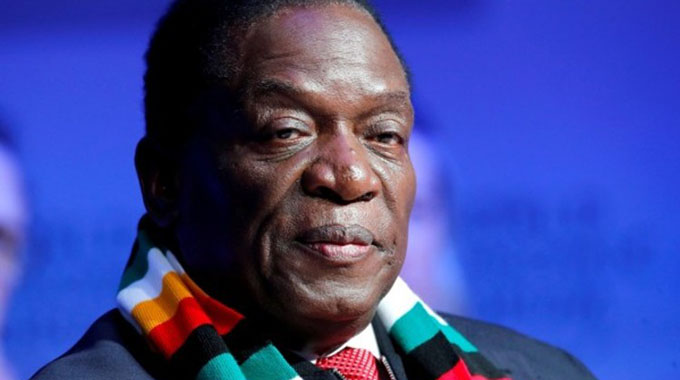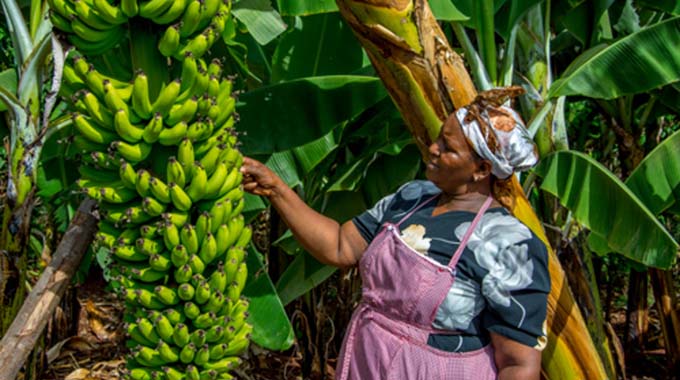On Zim’s return to the Commonwealth

Christopher Farai Charamba Political Writer
After an extended absence, some 15 odd years, Zimbabwe has initiated the process to return to the international body known as the Commonwealth.
In the year 2003, Zimbabwe pulled out of the organisation made up primarily of countries that were once part of the British Empire due to disagreements over land reform and the country’s electoral processes.
Now, it is the 2018 electoral process that will in part determine whether Zimbabwe will be granted the opportunity to rejoin the Commonwealth.
Secretary-general of the Commonwealth Patricia Scotland said in a statement this past Monday that Zimbabwe made the application to return on May 15.
She added that it would be a momentous occasion if Zimbabwe were to return due to the shared history the country has with the body.The British Foreign Secretary Boris Johnson shared his delight in the potential return of Zimbabwe when he tweeted: “Fantastic news that Zimbabwe . . . wishes to rejoin the Commonwealth.”
“Zimbabwe must now show commitment to Commonwealth values of democracy and human rights,” he added.
Should Zimbabwe hold free and fair elections as President Mnangagwa has promised, and the Commonwealth election observers deem it so, then it is highly likely that the country will find itself with a seat among other former British colonies.
Since the announcement this week, there has been a variety of debate around Zimbabwe and the Commonwealth. Some see it as a positive move, Zimbabwe opening itself to the world and exercising accountability.
Others have questioned whether it is really necessary to return to what is essentially a British institution.
They see it is as a neo-colonial construct and therefore regressive for Zimbabwe, a country which worked to economically emancipate itself through the land reform programme and indigenisation, to rejoin it.
While the previous administration under former President Robert Mugabe did undertake measures to redress economic imbalances between races in the country, the policies led Zimbabwe into an isolationist corner, particularly with Western countries.
The incumbent Government under President Mnangagwa has taken an internationalist approach to their foreign policy, seeking to engage with all countries with the desire to build relationships, acquire investment and develop Zimbabwe.
Returning to the Commonwealth, therefore, forms part of the country’s multilateral diplomatic strategy.
Taking a look at the association, there are a number of potential benefits Zimbabwe can gain.
The Commonwealth bloc comprises 2,4 billion people in 53 countries, with a cumulative GDP set to reach $13 trillion in 2020. Trade among Commonwealth countries rose to over $600 billion in 2015.
On average, Commonwealth members tend to trade 20 percent more and generate 10 percent more foreign direct investment flows than otherwise.
Overall bilateral trade costs between Commonwealth countries were 19 percent lower on average than with other countries.
One is cognisant of the fact that trade relationships are not equal among Commonwealth countries and also aware that the Commonwealth is not a trade bloc, therefore, negotiations between partners are essentially bilateral arrangements.
Zimbabwe could potentially go about seeking these bilateral relationships on its own, outside the Commonwealth, which it has in fact already been doing.
President Mnangagwa was recently in China and met with President Xi Jinping, then he was in Qatar negotiating agreements in the Arab nation.
He also travelled to the Africa Investment Summit in Côté d’Ivoire as well as to the World Economic Forum in Davos.
So why then should a return to the Commonwealth be deemed important?
For one, it signals to the world a change in the foreign policy position of Zimbabwe.
It must be remembered that Zimbabwe has been on sanctions and had a relatively isolationist policy for close to two decades.
Rejoining the Commonwealth thaws relationships with countries like Britain and her allies, the very ones that had imposed sanctions on Zimbabwe.
It also provides another platform and avenue for bilateral discussions to take place. It’s not just the UK that is part of the Commonwealth, there are 52 countries, which means 52 potential markets across the globe on every continent.
The current administration seems to have prioritised re-engagement because they realise that foreign direct investment is going to be a critical component of Zimbabwe’s development.
There is an example that people like to use, a comparison between Ghana and South Korea, two countries that were in a similar state economically when Ghana got its independence in the late 1950s.
The argument presented is that Ghana has natural resources and South Korea did not, yet the latter went on to become one of the biggest economies in the world, while Ghana remained reliant on international aid and assistance.
While all this happens to be true, what is often left out of the discussion is the level of foreign direct investment South Korea received in the 1960s.
Due to the geopolitical situation in the region and the Cold War, the USA heavily invested in South Korea, helping it to be where it is today.
According to SH Kim (2007), South Korea received some $26 billion in FDI in the 1960s. Adjusted for inflation that’s over $200 billion today.
Over $10 billion of that came directly from the US government and FDI amounted to over 60 percent of financing for projects in South Korea.
This is the part of the conversation that needs to be had, the financial and infrastructural deficit that Zimbabwe and other African countries have.
By understanding the importance of the global community, reaching and engaging directly with different counties from the West and the East, North and South, Zimbabwe can begin to redress is developmental shortcomings.









Comments